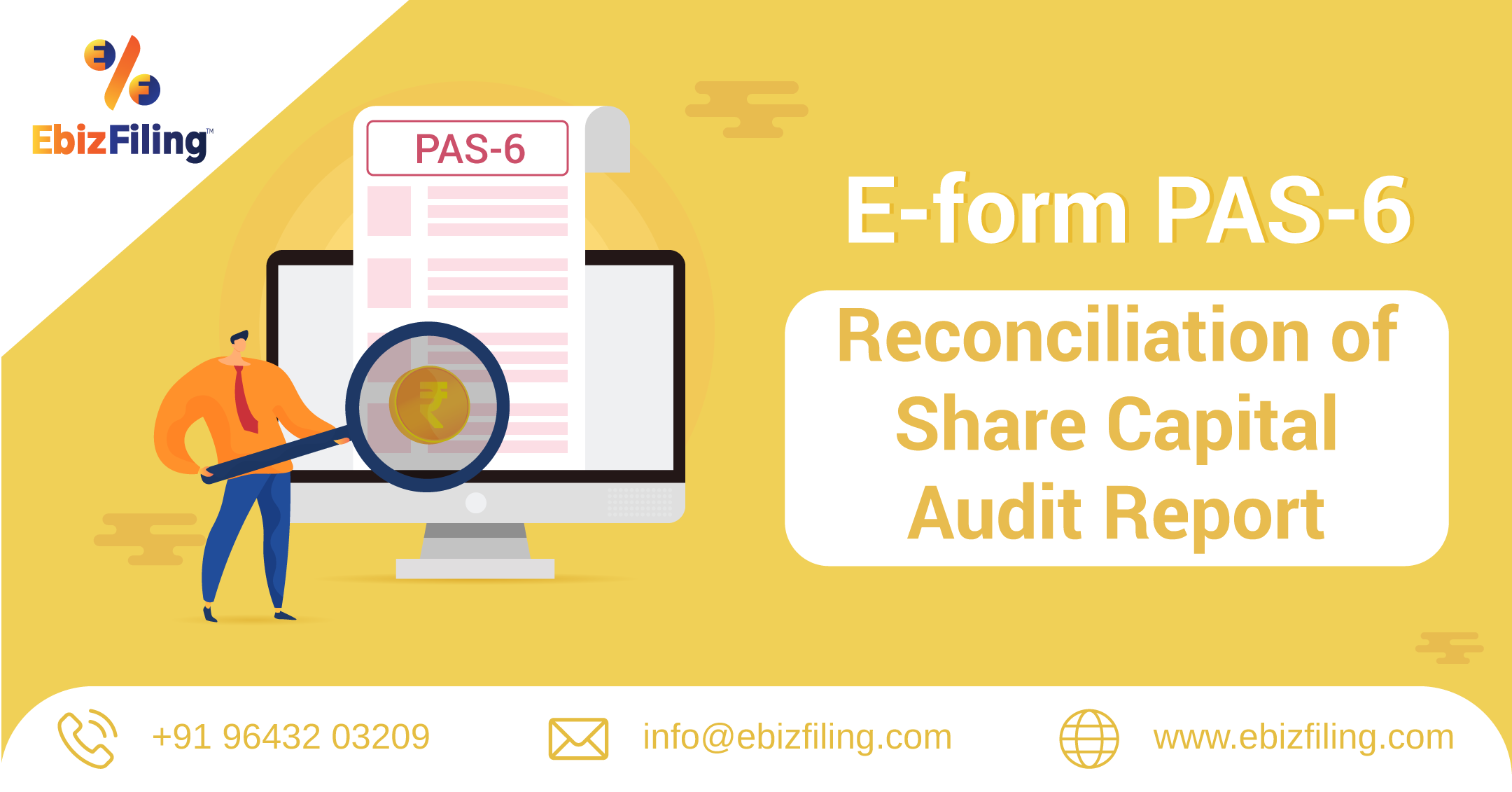
-
September 23, 2024
Form PAS-6 is applicable under Rule 9(A) of the Companies (Prospectus and Allotment of Securities) Rules.
The Ministry of Corporate Affairs (MCA) introduced E-Form PAS-6 to help companies reconcile their share capital audit reports every six months. Companies must submit this form biannually to ensure their share capital records align with the data held by depositories. In this article, we will explain everything you need to know about PAS-6, including the due dates, filing process, and applicability. The MCA made the form available on its portal starting July 15, 2020, under the Companies Rules.
What is Form PAS 6?
Unlisted public companies in India must submit Form PAS-6 to ensure their shares are accurately recorded in digital form. This form verifies that the number of shares the company has issued matches the records maintained by the official depositories (NSDL and CDSL).
Purpose of the Form PAS-6
The purpose of Form PAS-6 is to make sure that a company’s shares recorded in digital form (Demat) match the actual number of shares the company has issued. It helps keep the company’s share records accurate and up to date.
Due date Due date for submitting of Form PAS-6
Particulars |
Due date |
For half-year ending on 30th September |
On or before 29th November |
For half-year ending on 31st March |
On or before 30th May |
Rule 9(A) of Companies (Prospectus and Allotment of Securities) Third Amendment Rules, 2019
According to Rule 9A, every unlisted public company shall-
- Issue all future securities only in de-materialized form; and
- Convert all its existing securities into Demat form
You must do this according to the provisions and regulations of the Depository Act, 1996.
Process to file E-Form PAS-6
- The unlisted company must submit Form PAS-6 to the Registrar in whose jurisdiction the company’s registered office is located.
- The company must file it within 60 days from the end of each half-year, certified by a company secretary in practice or a chartered accountant in practice.
- You need to file the form with the prescribed fees under the provisions of the said rule.
- A Chartered Accountant or a Company Secretary in whole-time practice must digitally sign the E-Form. Additionally, you need to attach the details of the practicing professional and their digital signature.
Details to be inserted in PAS-6
- ISIN & Details about the Capital of the Company (held in de-materialized form in CDSL, NSDL and shares held in physical form) along with reason for any differences.
- Details regarding the changes in the share capital in the form of Rights, Bonus, Private placement, ESOPs, Amalgamation, Conversion, Buy-back, Capital Reduction, Forfeiture and others.
- Details about the shares held by Promoters, Directors and KMP.
- Particulars number of demat requests, number of shares and reasons for delay for requests confirmed after 21 days or requests pending beyond 21 days.
Company Annual Filing
Complete the annual filing for your company with Ebizfiling
About Ebizfiling -










Reviews
Deepika Khan
29 Sep 2018I would rate 5/5 for their services, pricing and transparency.
Nikita Salvi
13 Sep 2017Ebiz has got a very good team and competitive pricing. Amazing work. I look forward to using their services again.
February 26, 2025 By Team Ebizfiling
Voluntary vs Involuntary Strike Off Company in India A company in India can remove itself from the official register voluntarily, or the Registrar of Companies (ROC) can remove it involuntarily. Understanding the difference helps business owners stay compliant and avoid […]
January 1, 2025 By Team Ebizfiling
Essential Tips for Drafting a Shareholders’ Agreement A shareholders’ agreement is a critical legal document that establishes the framework for the relationship between shareholders and a company. It outlines the rights, duties, and obligations of shareholders and provides guidelines for […]
February 4, 2025 By Team Ebizfiling
Monthly Compliance Requirements for Private Limited Companies Private limited companies (PLCs) are widely favored for their limited liability, structured ownership, and access to capital. However, operating a private limited company comes with a responsibility to adhere to various legal and […]